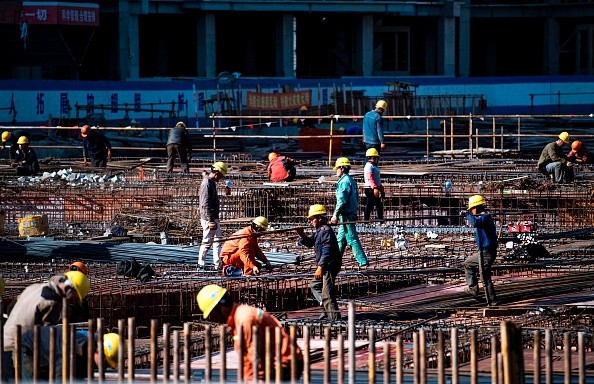China has set a lower economic target this year to enable the government to focus more on resolving the country's economic problems, economists said.
Economists told the Straits Times that China has to address issues such as over-capacity, check financial risks and manage the rising corporate debt.
Dr. Yan Se, a senior China economist at Standard Chartered Bank in Beijing, said that considering its economic improvement, the government may not set a very high target for economic growth.
"China should take the opportunity of the upturn to build a sound and robust system that can withstand future bubbles or external uncertainties," Dr. Yan said.
At the start of the National People's Congress on Sunday, March 5, Chinese Premier Li Keqiang said in his report that China's growth target this year is "around 6.5 percent."
UOB senior economist Suan Teck Kin, however, said that the government's main concern is if the growth rate would be strong enough to provide jobs to people.
Suan noted that with last year's growth rate of 6.7 percent, nearly 13.14 million jobs were created and this year, the country needs only about 6.5 percent growth to meet the target of 11 million jobs.
Huang Shouhong, director of the State Council Research Office, who helped to draft the work report, confirmed the information as he told media that the lower growth target can "safeguard employment."
"As long as we can ensure that there are no problems in employment, a higher or lower growth is acceptable," Huang said.
In addition to jobs, China is also set to "make big moves to improve the environment for foreign investors," as Premier Li promised.
Dr. Yan said: "The high level of openness in attracting foreign direct investment is, to me, the most important area outlined in the report."
Dr. Yan added that local government will also adopt policies to attract foreign investors as the government has opened sectors such as service industries, mining and manufacturing to them.
The economist said that the opening of the market will likely boost the long-term growth in the sectors, including long-term development in innovation-driven industries.
Premier Li said that in relation to this, the government will enhance the country's capability for technological innovations by setting up innovation hubs and hiring skilled foreign professionals.
Meanwhile, Suan said that uncertainties caused by external factors drive to a more conservative growth target. He cited factors such as the unfair U.S. trade policies that Trump may implement, the elections in Europe, and the Brexit negotiations.
"So China is looking to improve domestic demand, and use it as a driver to negate the negatives from the outside," Suan added.
In his report, Premier Li said that the government will increase efforts to raise domestic demand, especially in the fast-growing services sector.
Policy measures will also be implemented to enhance education, cultural and creative services and tourism, which is aimed at the growing middle class.
To boost growth, the government will also implement cost-cutting measures, which Li said will include plans to reduce business costs for small and medium enterprises, which contribute about 60 percent to the country's GDP.
The government will also scrap 35 administrative fees and other non-tax burdens to help companies grow and develop.
Among the other measures also include the lowering of mobile phone rates and the elimination of rates for domestic roaming and long-distance calls, as part of efforts to have more cost-effective networks.



























